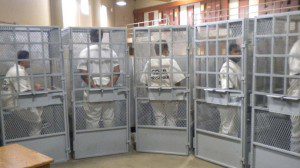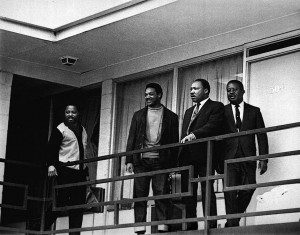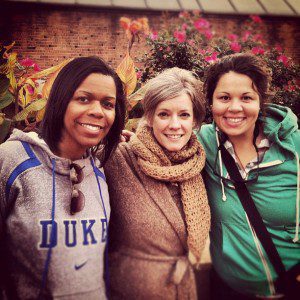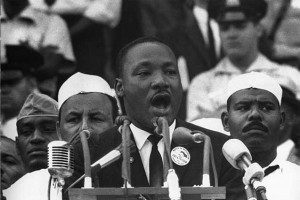 When bells ring across America at 3pm today celebrating Martin Luther King’s call 50 years ago to “let freedom ring,” I’ll be inside a maximum security prison. I can’t think of a better place from which to remember the Dream.
When bells ring across America at 3pm today celebrating Martin Luther King’s call 50 years ago to “let freedom ring,” I’ll be inside a maximum security prison. I can’t think of a better place from which to remember the Dream.
For the past five years, Project TURN has hosted classes inside North Carolina prisons. Half of our students come from outside the prison and half are incarcerated there. For a couple of hours a week, this is the only experience any of them have of sharing life together across the prison line. At the turn of the 20th century, W.E.B. DuBois, who died on the day King gave his most famous speech, wrote, “The problem of the 20th century is the problem of the color line.” King became a founding father of this country because he helped us all dream of a day when we could live together across that line.
As the news has covered the 50th anniversary of the March on Washington this past week, it’s been wonderful to hear the stories of so many people who were there. Much has been made of Mahalia Jackson, who said to King, “Tell them about the dream,” when his printed text did not include the lines that the speech is remembered by. But Jackson was simply encouraging the preacher, as everyone in that great tradition of call and response does, to work up to his great flourish. She knew the dream well because she has been at mass meetings with King throughout ’63, where he would often work from the hard facts of a local struggle toward the dream that gave everyone hope to go on.
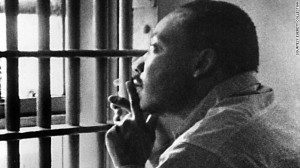 We always need preachers to remind us to “lift our eyes unto the hills from which cometh our help.” But if we are to remember King’s Dream today, we have to remember where it came from. We have to remember that this preacher made the choice in ’63 to go to jail in Birmingham on Good Friday. He didn’t get to preach his resurrection sermon that Easter Sunday. No, he went down into the tomb of Birmingham’s Jim Crow system to wait for a deliverance that only God could give. The miracle of the March of Washington that we celebrate today is a miracle that echoes the tradition of the One who got up from his grave.
We always need preachers to remind us to “lift our eyes unto the hills from which cometh our help.” But if we are to remember King’s Dream today, we have to remember where it came from. We have to remember that this preacher made the choice in ’63 to go to jail in Birmingham on Good Friday. He didn’t get to preach his resurrection sermon that Easter Sunday. No, he went down into the tomb of Birmingham’s Jim Crow system to wait for a deliverance that only God could give. The miracle of the March of Washington that we celebrate today is a miracle that echoes the tradition of the One who got up from his grave.
So we can give thanks that so many were willing to walk the way of the cross in order to cross the color line in this country. But prison is where I have to be to remember the Dream today because our work there has taught me that the problem of the 21st century is the problem of the prison line. As a nation, we incarcerate seven times as many African-Americans today as we did in 1980, when I was born. 65 million people in America have a criminal record, barring them in many cases from financial aid, public housing, gainful employment, and the right to vote. This is the reality that Michelle Alexander has called a “New Jim Crow.” My friend William Barber says the Old South went to law school and has come back as James Crow, Esq.
The problem before us is not small. Sometimes it can feel like a whole caste of people have been shut up in a tomb, left for dead. But these are the places where it makes sense to whisper stories of resurrection. This is where dreams are born that can transform a nation.


